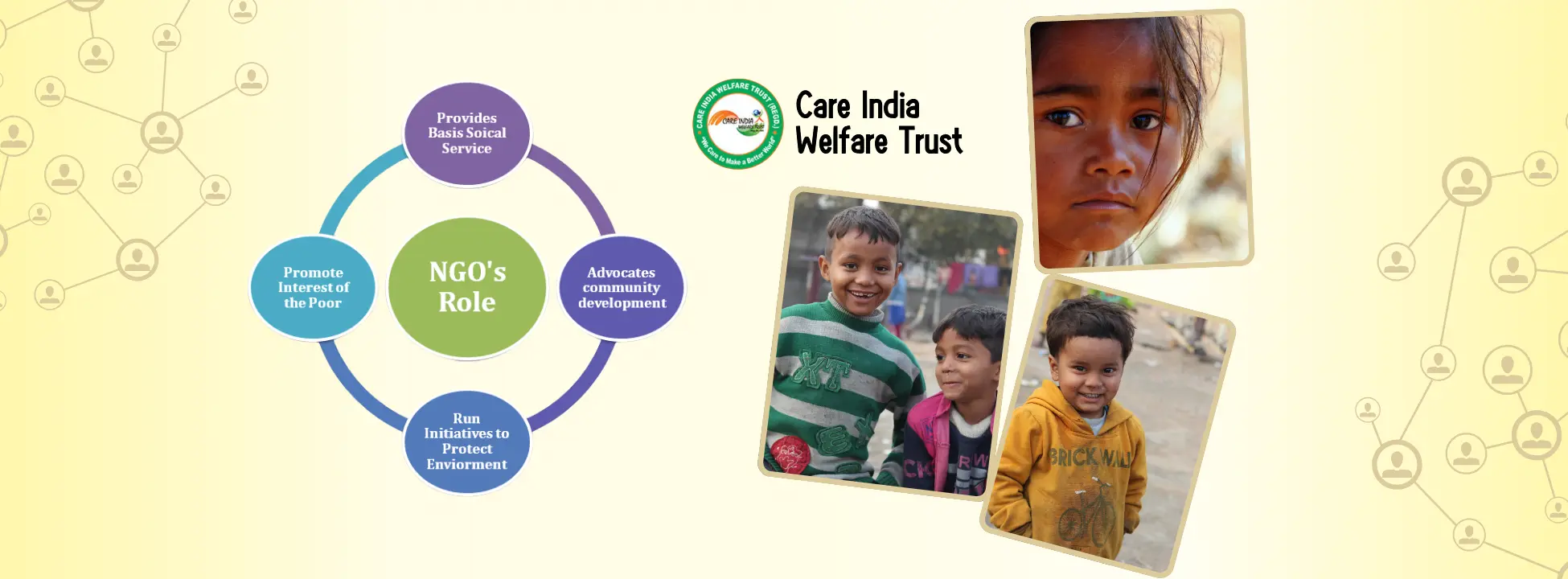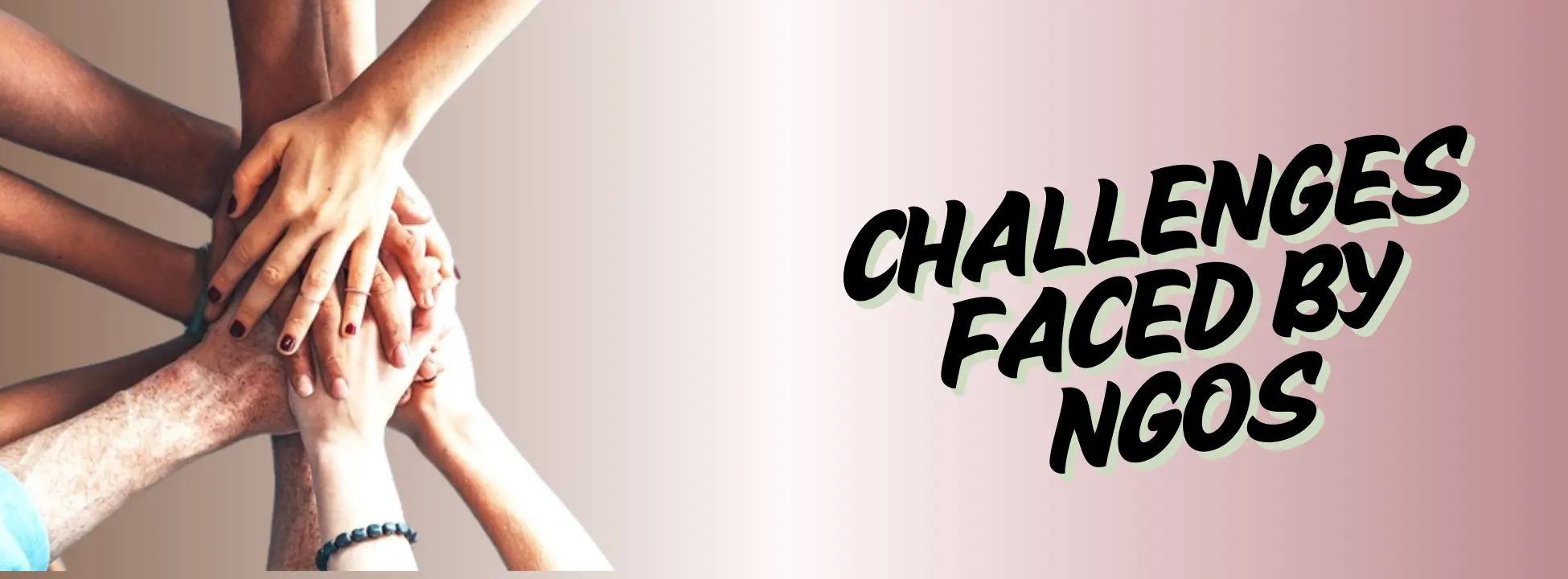The Role of NGOs In Society
An NGO plays an important role in our society. NGO (Non-Governmental Organizations) are the independent, and typically this is the nonprofit organizations that operate outside governmental control. Although they may receive the funding from the various sources, they play a crucial role in our society because they support the social change. They provide the humanitarian assistance and promote the community development.
The Role of NGO in social development is also important NGOs give food to the people who sleep hungry, they cannot afford a one-time meal NGOs provide them with three meals. You can also help them by contributing a small amount to them. The government also provides benefits to the poor people, but the government does not offer as many facilities as NGOs.
What is an NGO?
An NGO, or Non-Governmental Organization, is a commodity that works for social issues and the welfare of the community on a not-for-profit basis and generally does not get involved with the government. There are NGOs, which differ in size, mission, and scope, yet they all have a common goal of making positive impacts. Generally, the role of NGOs in development can be divided into different categories based on their aims:
- Charitable NGOs – Provide genuine help such as food, shelter, and healthcare.
- Advocacy NGOs – Focus on increasing awareness and making policy transformations.
- Operational NGOs – Execute programs and projects instantly in communities.
- Environmental NGOs – Work to protect the surroundings and encourage sustainability.
Key Roles of NGOs in Society
The NGOs are essential for shaping a better future. Below are some of their important roles:
1. Providing Humanitarian Aid
The role of non governmental organizations usually takes the first place to interfere in disasters by providing emergency assistance in the form of food, water, medical care, and shelter to affected populations. The Red Cross and CARE International are examples of such NGOs.
2. Advocacy & Awareness
They maintain the voice of marginalized communities in their advocacy for human rights, gender equality, and the environment. They organize protest actions and pursue legal avenues for implementation to bring about positive change.
3. Policy Influence & Government Accountability
Many non-governmental organizations are out to shape government decisions, guaranteeing them openness and justice. They engage in research, provide policy suggestions, and make governments answerable to the global citizenry by generating reports and setting up legal frameworks.
4. Community Development & Education
Community development is considerably aided by NGO initiatives, such as the establishment of schools, vocational training centers, and healthcare services. Organizations like UNICEF and Teach for India provide education for children from the underprivileged section of society.
How NGOs Are Funded
Due to lack of government control, NGOs depend on a wide collection of financing schemes to maintain their operational activities. Some major funding sources are mentioned as follows:
- Donations – Contributions from individuals, businesses, and supporters.
- Grants – Funding from multinational organizations and government assistance programs.
- Membership Fees – Some NGOs charge a membership fee for access to services or participation in programs.
- Crowdfunding – Joint efforts in collaboration with online platforms are used to help secure monetary issues for projects, businesses, or causes.
NGOs have more than these barriers, and that is why it is unavoidable to maintain transparency and accountability to be able to inspire trust among their donors.
Challenges Faced by NGOs
Executing an NGO is not without its problems. Some of the key challenges include:
- Funding Difficulties – Supporting processes can be challenging due to unstable financial support.
- Political Restrictions – In some countries, NGOs face country laws that limit their activities.
- Limited Resources & Manpower – NGOs often depend on volunteers and may struggle with insufficient staffing and resources.
How People Can Support NGOs
You don't have to be a billionaire to make an impact. Here are some ways to help NGOs:
- Volunteering – Offer your skills and time to help NGOs with their initiatives.
- Donating – Financial support, food, clothes, or medical supplies can go a long way.
- Spreading Awareness – Use social media to share information about causes and encourage others to contribute.
Conclusion
NGOs perform a vital task in global challenges, from disaster relief to advocacy and education. These dignified organizations are committed greatly on behalf of individuals in need. However, you can help NGOs help others. The role of ngo in development for good work can be supported through donations, fundraising activities, and volunteering. Become a part of the change today and get involved.
Call to Action: Interested in helping an NGO? Research local charities or look on the Internet, then take the first step toward making an impact!
FAQ
What is NGO Work?
NGOs function to promote social causes such as education, health care, poverty relief, and environmental protection through advocacy, fundraising, and community programs.
What Is An Ngo And What Do They Do?
An NGO is a non-profit organization that tries to serve people through education and health services, food, and assistance across the collection of social issues as well as environmental issues.
What is the meaning of NGO?
An NGO is a Non-Governmental Organization that a group can take care of people, animals, or the environment. These organizations are interested in the good cause of education, health, and poverty alleviation and do not earn profit.
How NGO Works?
An NGO works by helping people and communities. It raises awareness, provides support, and runs projects for education, health, or development. NGOs work with volunteers, donations, and government programs to create change.
What is NGO and its Functions?
An NGO (Non-Governmental Organization) is a group that works for social good without seeking profit. Its functions include helping communities, spreading awareness, supporting education, healthcare, the environment, and reducing inequalities.



